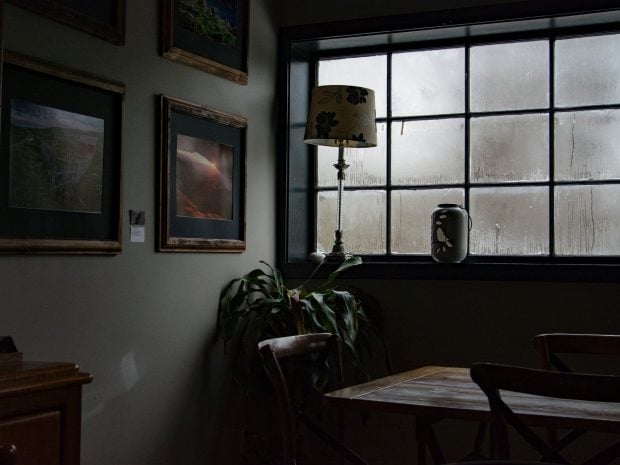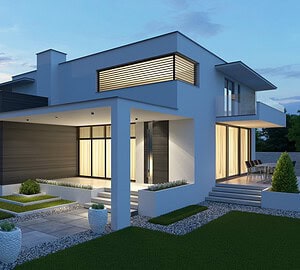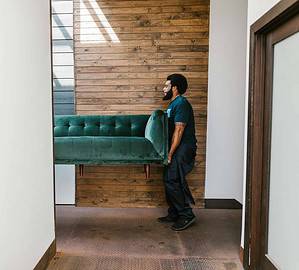Moisture in the apartment occurs most frequently during the heating period. It causes unpleasant feelings and an unsightly appearance of the room, but most of all, it is harmful to health. What are the causes of dampness in the apartment and what can be done to eliminate it?

Moisture in the apartment – why does it form?
Moisture on the wall seeps into the room from outside or is caused by everyday household activities. If it is noticed in the house, measures must be taken immediately to prevent its further spread. Moisture can contribute to the formation of fungus in the home, which is dangerous to health, so staying in a home where it has taken hold is not advisable.
It is important to remember that moisture, which persists for several days, creates ideal conditions for the development of fungi on the wall. Therefore, apartments must be ventilated so that excess moisture evaporates.
There are several main causes of dampness in the apartment.
Moisture from outside
Moisture in the apartment penetrates inside from the outside, and the reason for this may be cracks in the walls. Another reason is clogged gutters and then the water, instead of flowing freely down them, gets inside through the cracks. Moisture on the walls also appears through leaky roofs and poorly secured chimneys. These places in particular should be well sealed, so that no fungus grows in the apartment.
Dampness from the foundations
Moisture also draws from the ground, so in houses with a cellar, where the floor is not properly made or the cellar does not have proper ventilation – the moisture will get inside. That’s why it’s so important to make proper damp proofing. Dampness in the apartment may also appear due to poor construction of foundations and their lack of proper protection. Especially in places that are quite waterlogged, the construction of a house should begin with proper and reliable protection of foundations against the penetration of dampness into the interior.
Dampness from the sewage system
Old pipes, the lack of their tightness (even small) can cause dampness in the apartment, and as a result – the formation of fungi on the wall. Not only the leaky sewage system can cause dampness in the apartment, but also the lack of ventilation of the rooms with the daily use of a washing machine, hot and cold water tap. Whenever there is such an accumulation of moisture, it is necessary to ventilate the apartment and allow water vapor to escape. The worst thing you can do is close the bathroom or kitchen tightly. The same applies to bathing in hot water. It is natural for the water to condense, so install proper ventilation in the bathroom.
Moisture in the kitchen
Cooking, washing dishes, heating up the room from the oven and dishwasher – these everyday activities cause moisture to build up on the walls. Therefore, it is important to install a cooker hood in the kitchen or simply open the windows to ventilate the apartment.
Moisture in the apartment – how to prevent it?
Of course, already at the stage of designing a house or apartment, you need to take care of proper ventilation, drainage systems in the ground and insulation. As specialists from Local Technician say, it is important that all these construction activities are done correctly. Floor, ceilings, roof – these are the structures which should be especially strongly protected against moisture. What is more, it is necessary to properly install gutters which guarantee appropriate flow of water and impurities. One should also remember about regular cleaning gutters of accumulated dirt.
It is also important to heat the rooms in autumn and winter. This applies especially to family houses in old buildings. Underheating of rooms may cause moisture accumulation and consequently formation of fungus on the wall.
Too much airtightness is also a cause of dampness. Residents too often focus on staying warm inside the room and forget about regular ventilation. This activity must be carried out daily, also in winter. Airing houses and apartments is important not only to prevent fungus from growing in the apartment, but it is also extremely important for health and well-being. In unventilated apartments an unpleasant stuffiness is created, it is difficult to breathe in them, there is a dense atmosphere which promotes the formation of bacteria and contaminants of various types that may disturb or even damage the respiratory system. It is enough to ventilate the apartment for at least 10 minutes a day to prevent such situations.
Humidity in the apartment is a dangerous phenomenon and if it appears, it is necessary to act immediately to eliminate it as soon as possible.



